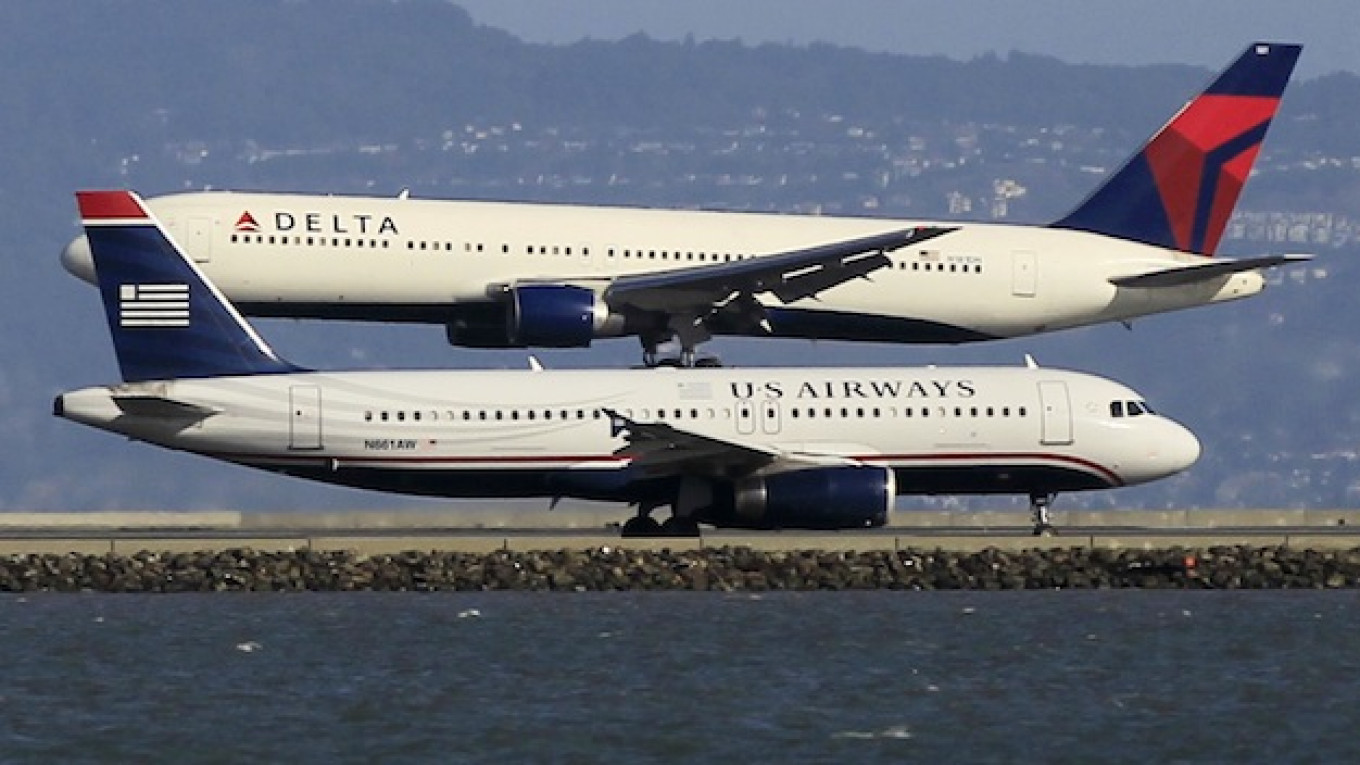U.S.-based Delta Air Lines has said it is ready to redirect flights between the U.S. and Asia if Russia closes access to its airspace in response to Western sanctions against Moscow, while other carriers are also looking into re-routing flights.
"Delta is prepared to quickly make alternate routings around closed airspace if necessary," Delta spokesman Morgan Durrant said Thursday, Bloomberg reported.
A possible Russian ban on European and American flights transiting over Siberia would affect 12 of Delta's services, the company said, according to BBC. All in all the ban may affect hundreds of flights each week, Bloomberg reported.
Delta CEO Richard Anderson said in an interview with CNBC earlier this week that while rerouting flights means that "you'll burn a little more gas," the higher fuel costs are sometimes "offset by overflight fees" that Russia charges for flights over its airspace.
United Airlines — which, along with Delta, ranks among the world's top three in terms of traffic — is "concerned that this ban will affect our ability to fly certain routes as currently planned," spokeswoman Christen David told Bloomberg.
"We are evaluating options for each route that may be affected," she said.
Major U.S.-based package delivery service United Parcel Service, or UPS, also has plans to reroute its jets, spokesman Andy McGowan said, Bloomberg reported.
Global courier service FedEx, which runs the world's largest cargo airline, said it was monitoring the situation but that flights were proceeding as usual, the report said.
A spokeswoman for U.S. airline lobby Airlines for America told Bloomberg that "it would be unfortunate if Russia made a decision that would have the unintended consequence of impacting people and economies around the world, including its own."
"Aviation is a global industry with airlines around the world using overflights every day in the course of transporting people and goods," she said.
See also:
A Message from The Moscow Times:
Dear readers,
We are facing unprecedented challenges. Russia's Prosecutor General's Office has designated The Moscow Times as an "undesirable" organization, criminalizing our work and putting our staff at risk of prosecution. This follows our earlier unjust labeling as a "foreign agent."
These actions are direct attempts to silence independent journalism in Russia. The authorities claim our work "discredits the decisions of the Russian leadership." We see things differently: we strive to provide accurate, unbiased reporting on Russia.
We, the journalists of The Moscow Times, refuse to be silenced. But to continue our work, we need your help.
Your support, no matter how small, makes a world of difference. If you can, please support us monthly starting from just $2. It's quick to set up, and every contribution makes a significant impact.
By supporting The Moscow Times, you're defending open, independent journalism in the face of repression. Thank you for standing with us.
Remind me later.






